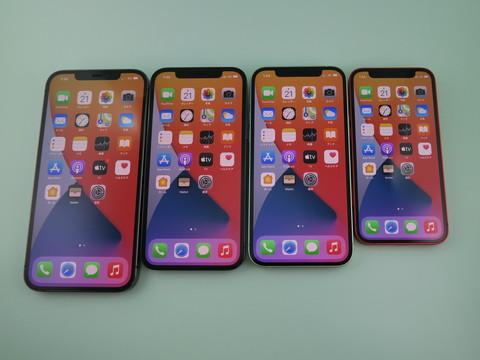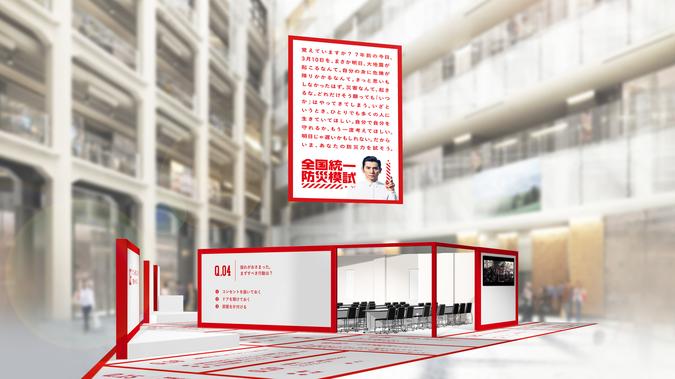[New Year Dialogue] Year-old musicians Hideki Sakamoto and Tsutomu Narita talk about their thoughts on the younger generation as they aim for the game industry. Comments from Yasunori Mitsuda!
On behalf of the old man, game music masters talk!
Famitsu's New Year's annual dialogue project with old men. In 2019, we delivered a crosstalk between Yoji Shinkawa, Yusuke Naora, and Mel Kishida, and a dialogue between Hajime Tabata and Atsushi Inaba.
In 2020, Hideki Sakamoto and Tsutomu Narita will appear as child representatives of the game music industry. Even in the same childhood, there is a difference of 12 years old, and we asked the two who are active as veterans and young people to think about the background of starting music activities, the stance of composition, and the younger generation who will lead the next generation. Please enjoy the story of two people who have different personalities but have the same aspirations.
Hideki Sakamoto (Hideki Sakamoto)
Born in 1972. Born in Tokyo. NoisyCroak CEO and composer. His masterpieces include "Super Smash Bros. Smash Bros. SPECIAL", the main theme "Light of Life", and "Romance of the Three Kingdoms 14". "Wind Boys!" Scheduled to be released in early 2020. ], The first challenge to make a brass band music.
Tsutomu Narita
Born in 1984. Born in Tokyo. A freelance game musician. He is in charge of composition for "Granblue Fantasy", "Granblue Fantasy He is Versus", "Granblue Fantasy He is The Animation", "Final Fantasy XIV Online Expansion Pack: Comrades", etc.
Gap around the zodiac
――The two are old men who are just one age difference in the zodiac.
Sakamoto That's right. I was surprised.
Narita (laughs). I knew that Mr. Sakamoto was older than me, but game musicians are of unknown age, aren't they? Only active people.
Sakamoto That's true. I'm the most active game musician now because I'm a little older than me.
――Why is that?
Sakamoto : I think it's because I was a generation who was absorbed in NES when I was a child. It was a profession that those people wanted to be in the future, and it was an era when the occupation of sound creator was established.
――The influence of NES is enormous.
Narita By the way, when I was in elementary school, I was playing with the Super Nintendo Entertainment System.
Sakamoto Eh! I was a game watch.
――There is a difference of 12 years here (laughs).
Narita : I was a true "FINAL FANTASY" & "Dragon Quest" kid. He first played "FFV" (1992 work) when he was in elementary school, but when he talked to Nobuo Uematsu, he was surprised "Huh?" (Laughs) ..
Sakamoto Hmm. In "FFV", my grandmother who was watching my play sideways was moved and cried.
Everyone (laughs).
Memories of games played as a child
――What kind of childhood did Mr. Narita spend?
Narita I grew up in a piano class, so he used to play as a hobby since he was a kid. So he was asked, "Why don't you go to the recital once?" And he played "FFV"'s "Haruka Hometown". That was my first experience playing in public.
――It's a song that plays in the hero's hometown. good song.
It's Narita , isn't it? I chose from "Piano Collections". At that time, I had my parents buy sheet music for the "Fun Bayer Combination" series, but I think it was around the 6th grade that I started playing by ear because I couldn't wait until it became a sheet music. That was "Showdown With Magus" of "Chrono Trigger" (released in 1995).
Sakamoto That's right. At that time, it was the mainstream to copy and play by ear. When I was crazy about what I liked, I learned it even if I didn't realize it was studying. Besides, game music is something that you listen to over and over again, so everyone remembers the song. If you can play it, you can become a school hero with an iron plate (laughs).
Narita : I'm happy about that again (laughs).
――Mr. Sakamoto aspired to be a game musician because of the influence of "DQ".
Sakamoto Yes. The first thing I played was "DQII" (released in 1987). That's why I thought Koichi Sugiyama's music was insanely wonderful. When I was in the third year of junior high school, I got a computer at home, and "Ys" (a masterpiece RPG series that continued from the first work released in 1987) was so good that I was pickled by Yuzo Koshiro, who worked on the music. ..
Narita I also liked "Sansara Naga 2" (released in 1994). As an aside, the "Sansara Naga" series is an RPG produced mainly by Mamoru Oshii and Kenji Kawai, the staff who worked on the animation of "Mobile Police Patlabor". The illustrations are heartwarming, but the theme is reincarnation and the world view is very heavy. So, at that time, when I looked at the ending staff roll to the end, there was a specification that the save data disappeared. I was surprised that "because the theme is reincarnation" (laughs). I also liked "Mana". I played a lot, but after all there were many RPGs by Square Enix.
Youth when I started composing
――When did you both decide to become a composer?
Sakamoto I'm in the second year of junior high school. Born in a house like listening to classical music, I started playing the piano at the age of four, so I naturally fell in love with music ... Knowing the game music, I was convinced that "I have only this." But my father responded, "Will this be a profession? Become a civil servant." I replied "Yes" to it, but I didn't feel like obeying it at all.
Narita : I didn't decide that it was game music, but when he was in the second or third year of high school, he decided to become a composer. Like Mr. Sakamoto, he was opposed by his parents.
Sakamoto Well. You'll know when he becomes a parent. After all, the music industry is unstable ...
Narita : Since my parents are musicians, I know how harsh it is. For more than half a year, I persuaded him every time I met him, and after he finally got me okay, he supported me (laughs).
――Mr. Narita released a brass band song when you were 20 years old.
Narita Yes. That was the first experience I received for music. I used to play brass band, chorus accompaniment, and band, so I couldn't get the feeling of "what genre and what I wanted to do".
Sakamoto By the way, how did you compose at that time?
I was composing with the musical score in the function of Narita Cubase (sequencer series developed by Steinberg, Germany. Playing performance data and performing automatic performance). At that time, I didn't have a solid musical score production software yet, and I used the musical score in the sequencer function instead, so it was very hard to see.
Sakamoto : I didn't even have Cubase in my time (laughs). The production environment is completely different between me and Mr. Narita. Moreover, the price of the equipment was extremely high ...
Narita : In the studios of composers of that era, there are usually 3 to 4 rows of tall 19-inch racks. Rather than being personally particular, it seemed to be essential.
Sakamoto : All the sounds come from external sound sources, so there was a mixer that puts them together, and there was equipment for recording. There are hundreds of thousands of yen and millions of yen per unit. Now that's all done with one PC.
――It's really hard for young people who are aiming for music to try to get it all together.
I'm Sakamoto . So it seems that other people have taken over what someone no longer uses. I couldn't do that, so I started composing in earnest using only one synthesizer from Roland called JV. That was when I was a college student.
Narita My synthesizer was the XV one generation later (laughs).
Sakamoto Oh! I'm super envious (laughs).
Narita The first master keyboard I bought (a keyboard for controlling multiple synthesizers) was the RD-700.
Sakamoto I was a Yamaha keyboard called EOS. It's like Tetsuya Komuro is promoting it so I'll buy it (laughs). Rather, DX7 (a classic and longing synthesizer for people who played music in the 1980s) was expensive. That's why you bought an EOS that you can buy at less than half the price.
Narita : I was a high school student when I first bought a synth. If KORG's TRITON was too expensive to buy, I bought a compact and light model called TRITON Le. There are more and more portable synths out now. It can be battery-powered. In a way, it was like a precursor to that.
Sakamoto Then, did you use the sequencer built into the synth when composing?
![[New Year Dialogue] Year-old musicians Hideki Sakamoto and Tsutomu Narita talk about their thoughts on the younger generation as they aim for the game industry. Comments from Yasunori Mitsuda! 【新春対談】年男音楽家 坂本英城氏と成田勤氏が語る、ゲーム業界を目指した日々、若い世代への想い。光田康典氏からのコメントも!](https://website-google-hk.oss-cn-hongkong.aliyuncs.com/drawing/article_results_9/2022/3/9/d729c88842ed216482075a10b3c6c608_1.jpeg)
Narita That was the first time.
Sakamoto : I see, that's the first difference. When I was a high school student, the synth didn't have a sequencer inside, so I used a cassette MTR that could be overdubbed and edited on a cassette tape. After that, the MD MTR came out, and it evolved into a hard disk MTR. It's an era where you can do everything on your PC, including those functions.
At that time when I had an unlucky time, when I got unexpected luck
――After that, please tell us the story of when you both started making game music.
Sakamoto : I entered the music industry for only a short time after graduating from college, but most of my work was caring for artists and drivers. Of course, I also studied studio work there, but I wanted to make music myself. Leaving that job, I started making music as a completely freelancer while working part-time.
――What kind of game music were you first involved in?
It was a game of Sakamoto PlayStation. You've enjoyed the joy of providing music to the latest game consoles that completely turn over the game music up until that point. Was there 100 songs?
-Suddenly that's amazing!
Sakamoto But I wasn't blessed with the opportunity to name myself. In the first place, in order to get a job directly from the manufacturer, it was necessary to start a company and make a contract. As a freelancer, I don't have that kind of money, and in the meantime, there are developers and other composers who help me, so even if I work, I often can't get my name on the staff roll. was.
――You want to give a name so that you can show your achievements and connect to your next job.
Sakamoto That's right. If this is a top creator, it's a different story, but at that time it wasn't the time to find value in game music as much as it is now. I was disappointed, but I did my best with the goal of being able to give a name.
――Mr. Narita has a big encounter with Mr. Uematsu.
Narita That's right. Originally, I was a fan of Mr. Uematsu, and I was a listener of the radio that Mr. Uematsu used to distribute. At one point, there was a very loose recruitment saying, "We are recruiting people with some special skills," so I immediately sent the sound source. Then, "I want you to use this as a sound source for programming," the score of the main theme of the project that Mr. Uematsu was working on at that time was sent.
Sakamoto : In short, it's a manipulator request, isn't it? Was it a power test?
Narita : I had just enough time, so when I sent it back overnight, I was asked, "Why don't you meet in person at Mr. Uematsu's office?"
Sakamoto You've seized a great opportunity!
While Narita head talked in the white, Mr. Uematsu asked, "Are you interested in arranging?" He said "I want to do it" because it was something he usually does, and he got a job after that.
Sakamoto is amazing. That's an ant (laughs). When was that?
Narita is 24 years old. At that time, I was arranging an anime song called "Guin Saga", but after finishing all the initial work, I was told for the first time that it was a "Guin Saga" song. , I turned it over (laughs). It's still an unbelievable story.
Sakamoto : I'm sure it's because I knew that I was a person who could work while interacting. Moreover, it was finished the next day. If anyone has that kind of talent, everyone will want to meet.
Narita : At that time, there weren't many people who could write orchestra and brass band music, and also make programming and band music. The response speed is also the same, but it seems that it was good.
――Mr. Narita, even if you got the job of "Granblue Fantasy", I feel that you are taking the opportunity brilliantly.
Sakamoto I think so too!
Narita : I was invited by Mr. Uematsu to take over the work of "Granblue Fantasy". At first, Mr. Uematsu wrote 11 songs, and he started by writing 9 additional songs, but by the time this article comes out, it's about 100 songs (laughs). I didn't expect to write so many songs myself.
Sakamoto Now, it's a signboard work of Cygames.
Narita : Most of the recent songs have about 5 minutes per song, so the volume is quite large.
Sakamoto : Is that so long?
Narita So far, the longest song has 12 minutes. Even in the most difficult battles, if various strategies are established, the subjugation time will be shortened, but it will take tens of minutes at the first look. Therefore, the director sometimes asked me to use a longer length. When I started saying "Yeah, I'll do it!", I made a song for about 10 minutes (laughs).
Sakamoto : I'm enthusiastic (laughs).
Narita : Then, when I thought "I've done it!", The next year or so, I was told "Please use the same scale as that song" and my head turned white (laughs).
Sakamoto 12 minutes is hard ...
――Mr. Sakamoto, who has a Guinness record for making a song of about 75 minutes with "Infinite Corridor Light and Shadow Box", says that? (Smile)
Sakamoto Excuse me (laughs). However, Mr. Narita is amazing. Do you say that you got a job in game music because you had the style that Mr. Uematsu wanted, and from there you are steadily expanding your field of activity? On the other hand, I had a really hard time getting the PlayStation job I mentioned earlier. Anyway, no matter where you send your resume, it will be wiped out ...
Narita Oh ...
Sakamoto : "I'll do it by myself! It's bad that I don't know what I'm capable of." However, when I listened to it again, I was sending a demo sound source of incredibly low quality. It was just naive.
Narita No ... I can't even listen to the old demo sound source, I'm scared (laughs).
――But, did Mr. Sakamoto go to the point of starting a company without rotting there?
Sakamoto That's right. The scale of what I'm doing has grown, but my attitude toward work hasn't changed at all.
--Mr. Narita didn't want to join a company somewhere?
Narita : Well, there were many things I wanted to do ... At school, there weren't many places where I could study both classical music and programming and band music. I also wanted to do a gekitomo music in the future, and I was worried that if I narrowed down to one thing, I wouldn't be able to do anything else, so I decided to join a company and play music. I didn't think about it.
Sakamoto : That feeling is exactly the same as mine. Once you enter the maker, you will only be involved in that game. This does not mean that I am denying the people who belong to the manufacturer, but that what I was aiming for was that it fit the style of freelance.
Narita That's right. For that reason, I also did a lot of part-time work other than music.
Sakamoto By the way, what did you do?
Narita : The longest part was a part-time job at a gyudon chain store. I've been doing it for 5-6 years.
Sakamoto Oh, I'm a fast food restaurant!
Everyone (laughs).
Even in Narita , on the way, it becomes "this is fine" and I try to get rid of my own escape.
Sakamoto I understand. There is freelance (laughs).
Narita : I was able to buy the master keyboard, sound source, and sequencer that I should have at least for a part-time job, so I thought I'd spend the rest of the money on time that would lead to the future. I repeated that I would do a short-term part-time job when my life became really difficult. I did a lot of part-time work, such as setting up and posting events, entering data for telephone calls, inventorying company equipment, checking the gluing of mail, and so on.
Sakamoto : Oh, I also remember a lot ... The house I lived in at that time was propane gas, but when I apologized to the uncle of the gas shop who came to get the fee, "I'm sorry, I can't pay this month," he said, "Finally, I'm supporting you for half a year." Have you ever been told?
I have also heard from Mr. Uematsu Narita . Gas and electricity were turned off, and I put water in the cup ramen and ate it.
Sakamoto (laughs). At first, everyone is like that. But that's not unhappy, isn't it? I wanted to spend even a little money on the equipment.
Narita That's right. I'm doing what I like.
Sakamoto : You can't have a job from the beginning. Especially with music, it's difficult to tell people what you're making.
――The height of the hurdle is different between showing a picture to a person and listening to a sound source.
Sakamoto : It's really hard to start the engine for the first time, and even if you get the job done well and do it, your name may not appear on the staff roll. Did Mr. Narita have such a dilemma?
Narita Fortunately, Dogyear Records (a music production company established by Mr. Uematsu) often acted as an intermediary, so I didn't have much trouble in terms of conditions. It's only recently that I've been able to work on my own. However, I felt that I was too recognized as an arranger. Of course, I love arranging, and I'm grateful, but what I wanted to do in the future was rather composition.
Sakamoto : Yes, especially if you're freelance, that kind of branding is difficult, isn't it? I think it is necessary to clarify what you want to be and what kind of activities you want to do in the future, and control so that you do not make obstacles.
Narita : I feel that the staff roll has improved considerably. The generations above me are having a hard time doing that, and the generations below are working to prevent it from happening.
Sakamoto It's natural to say that you've done what you've done. At our company, the sound designer who was in charge of sound effect production, and the name of the performer when the music is played live, make sure that accurate information is properly credited. I can't let other people do the unpleasant feelings I made.

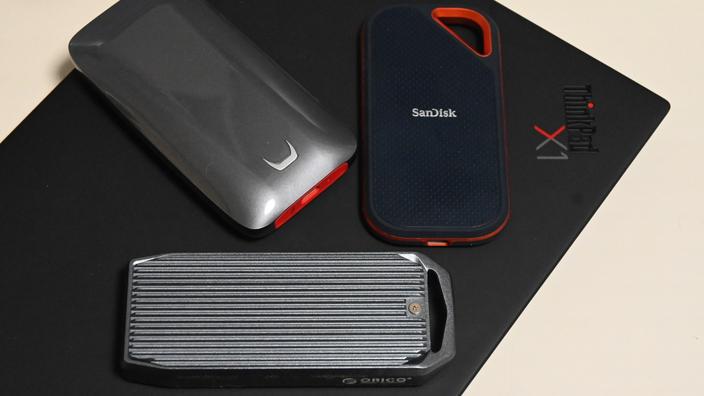

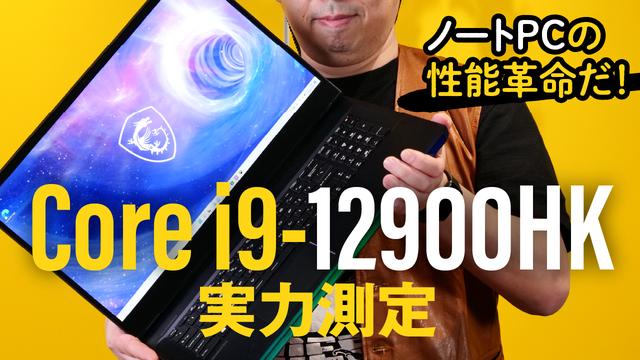
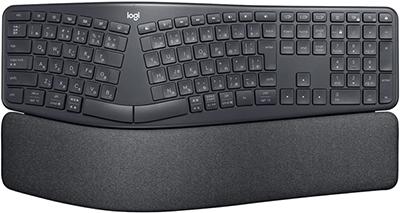
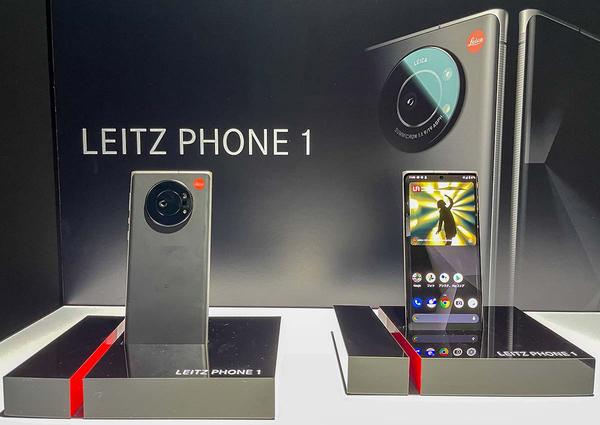
![[July 6 and 7] DX realized by content cloud, advanced platform for business transformation](https://website-google-hk.oss-cn-hongkong.aliyuncs.com/drawing/article_results_9/2022/3/9/6bbafe438d78271513761788166cbf94_0.jpeg)
